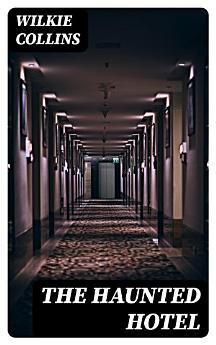The Haunted Hotel
নভে ২০২২ · DigiCat
ই-বুক
183
পৃষ্ঠা
family_home
উপযুক্ত
info
reportরেটিং ও রিভিউ যাচাই করা হয়নি আরও জানুন
এই ই-বুকের বিষয়ে
In 'The Haunted Hotel,' Wilkie Collins masterfully blends elements of gothic fiction with a gripping detective narrative, crafting a tale that immerses readers in a world of suspense and psychological intrigue. Set against the backdrop of a quintessentially eerie hotel, the story explores themes of illusion, identity, and the supernatural, underscoring Collins' innovative narrative style that frequently employs unreliable narrators and intricate plotting. The novel, published in the late Victorian era, reflects the period's fascination with the macabre and the burgeoning interest in spiritualism, while also addressing broader societal anxieties surrounding crime and morality. Wilkie Collins, a contemporary and friend of Charles Dickens, was a pioneering figure in the development of the mystery genre. His own experiences with the paranormal and his deep engagement with Victorian debates about science and mysticism undoubtedly influenced his writing. 'The Haunted Hotel' showcases Collins' ability to intertwine personal tribulations and societal concerns, drawing from his rich background in law and theatre, which lends a unique authenticity to his storytelling methods and character development. For readers interested in Victorian literature, gothic themes, and the evolution of mystery fiction, 'The Haunted Hotel' is an essential addition to the canon. Collins' engaging prose and compelling plot twists invite attendees to reflect on human nature's complexities while savoring an atmospheric reading experience. This novel not only entertains but also provokes profound thought regarding reality and the unknown.
লেখক সম্পর্কে
Wilkie Collins was a prolific English novelist, playwright, and short story writer who is best remembered for pioneering the mystery and detective fiction genres. Born on January 8, 1824, in London, Collins developed a narrative style characterized by his ingenious use of suspense and his sharp social observations. He was a close friend of Charles Dickens, with whom he often collaborated. Collins's intricate plots and engrossing storytelling captivated Victorian audiences, and his work remains widely read and studied to this day. His most famous novels include 'The Woman in White' (1860) and 'The Moonstone' (1868), which are considered to be among the first modern detective novels, incorporating elements of Gothic horror, psychological realism, and the play of identity. 'The Haunted Hotel: A Mystery of Modern Venice' (1879) is another one of his notable works, a spine-chilling tale that combines elements of the supernatural with a keen analysis of the human psyche. Collins's contribution to literature extends beyond his narrative innovations; he also challenged the social norms of his day, including the treatment of women and the institution of marriage, through his memorable characters and intricate, socially conscious plots. Scholars frequently explore Collins's work for its ahead-of-its-time commentary on Victorian society, making him a fixture in discussions on 19th-century literature.
ই-বুকে রেটিং দিন
আপনার মতামত জানান।
পঠন তথ্য
স্মার্টফোন এবং ট্যাবলেট
Android এবং iPad/iPhone এর জন্য Google Play বই অ্যাপ ইনস্টল করুন। এটি আপনার অ্যাকাউন্টের সাথে অটোমেটিক সিঙ্ক হয় ও আপনি অনলাইন বা অফলাইন যাই থাকুন না কেন আপনাকে পড়তে দেয়।
ল্যাপটপ ও কম্পিউটার
Google Play থেকে কেনা অডিওবুক আপনি কম্পিউটারের ওয়েব ব্রাউজারে শুনতে পারেন।
eReader এবং অন্যান্য ডিভাইস
Kobo eReaders-এর মতো e-ink ডিভাইসে পড়তে, আপনাকে একটি ফাইল ডাউনলোড ও আপনার ডিভাইসে ট্রান্সফার করতে হবে। ব্যবহারকারীর উদ্দেশ্যে তৈরি সহায়তা কেন্দ্রতে দেওয়া নির্দেশাবলী অনুসরণ করে যেসব eReader-এ ফাইল পড়া যাবে সেখানে ট্রান্সফার করুন।








